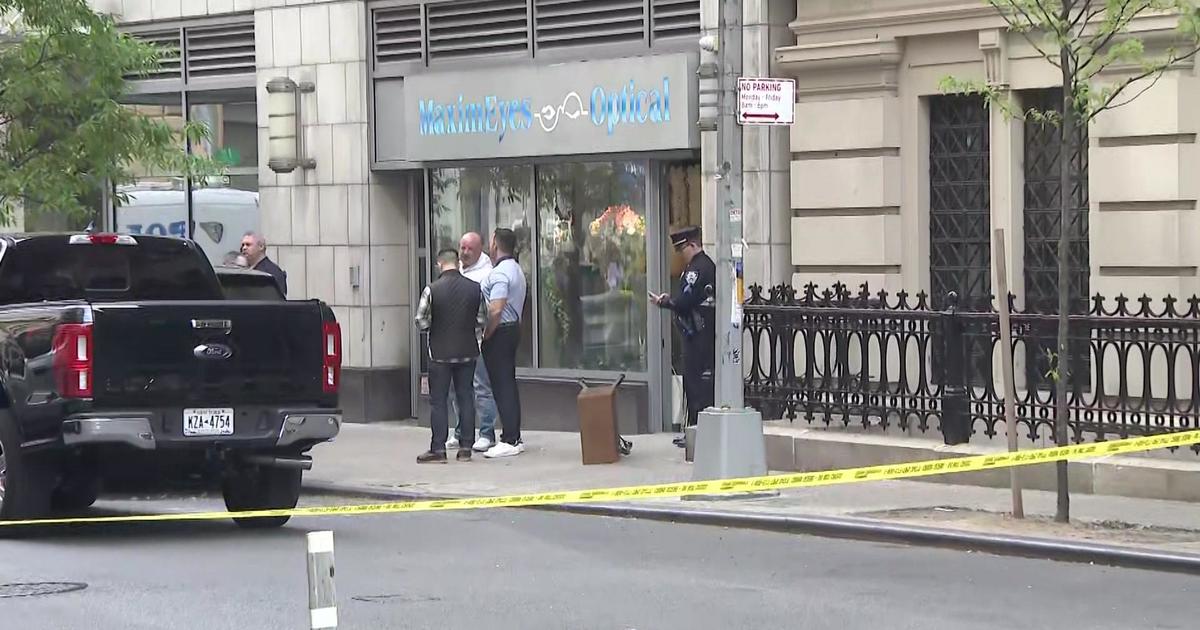Sentencing Set For Raj Rajaratnam, Hedge Fund Founder Convicted Of Insider Trading
NEW YORK (CBSNewYork/AP) -- The prison term awaiting a one-time billionaire hedge fund founder convicted of insider trading charges is unpredictable at best in a Manhattan courthouse where judges vary considerably in their assessment of how justice should be dispersed at sentencing.
Raj Rajaratnam, 54, is scheduled to be sentenced Thursday for his conviction at trial earlier this year. If federal prosecutors have their way, he'll get between 19 1/2 and 24 1/2 years in prison for what they say were more than $72 million in profits for himself and his Galleon Group of hedge funds. If defense lawyers are persuasive, he'll face between 6 1/2 and 9 years for what they say was about $7 million in illegal profits.
Regardless of the outcome, his fate may have been decided when Judge Richard J. Holwell was selected to hear the case after the Sri Lanka-born Rajaratnam's October 2009 arrest.
"Welcome to the Southern District of New York," said Rita Glavin, a former federal prosecutor who leads the white-collar crime unit at the Manhattan law firm of Vinson & Elkins.
"The judge you are assigned to is critical," Glavin said. "Having been on the prosecution side, there were certain judges from a government perspective you loved being in front of whether for trial, sentencing or evidentiary issues. Now that I've moved to the defense side, it's not necessarily the same judges."
U.S. Attorney Preet Bharara's campaign against insider trading on Wall Street -- an effort that has resulted in nearly 50 arrests -- has kept some of the more than three dozen trial judges busy in the Southern District of New York, the formal name of a court district that includes Manhattan, the Bronx and northern New York suburbs encompassing Westchester, Dutchess, Orange and Rockland counties.
The tone and result in sentencings have varied widely for those charged in the case against Rajaratnam and two dozen co-defendants, all of whom have been convicted, most as a result of guilty pleas. Most of the sentencings have resulted in prison terms ranging from a few months to a few years. Besides the sentencing guidelines, judges are supposed to take into account various other factors, including the defendant's personal history and the need to deter others from committing similar crimes.
The longest sentence handed down -- 10 years -- came from a stern Judge Richard Sullivan, who last month dispensed some finger-wagging words toward Zvi Goffer immediately after telling him that he viewed Goffer's sentencing as "a tragic day," not a day "for lecturing or finger wagging or table pounding."
He told Goffer that he had a gambler's mentality after his arrest.
"You decided to double down and gamble on a trial," Sullivan said, adding that Goffer acknowledged his crimes post-trial.
"Had you made that acknowledgement before trial, you might have shaved almost three years off your guideline's sentence," he said as he gave him a sentence near the lower end of the guideline's range. "The prospect of a shorter sentence is something that you passed up to do all or nothing. You went for broke. Look, you gambled and you lost on that one too."
He added: "I am not saying you are going to be punished for going to trial, but there are consequences that flow from that. You don't get the benefit of people who accept responsibility."
A few hours later, Winifred Jiau, 43, of Fremont, Calif., was sentenced to four years in prison after her conviction in an insider-trading probe that focused on Wall Street consultants who matched up public company employees willing to divulge secrets about earnings and mergers with hedge fund managers. The investigation was a spinoff of the Rajaratnam-Galleon probe.
Jiau received half the prison term recommended by sentencing guidelines from Judge Jed Rakoff, who had a different view of the effects of going to trial.
"I know judges vary. It will never be the policy of this court to make a huge difference in sentence between those who exercised their right to go to trial and those who plead guilty, because at that point I think it becomes no longer a recognition of the credit that should justly be given for acceptance of responsibility, it becomes a veiled price of going to trial," he said. "There should be no price on going to trial."
When a prosecutor protested, saying a defendant is less likely to repeat a crime if he or she acknowledges it, the judge added: "That may be true. I'm not sure. If I had a dollar for every defendant who tells me at the time of sentence that they'll never do it again and then comes back six months later on a probation violation, I would be a very wealthy fellow."
Annemarie McAvoy, a Fordham Law professor, said she learned as a young federal prosecutor in Brooklyn from 1989 to 1992 that the judge assigned to each case "makes a huge difference."
"There were clearly judges who were more favorable to the government. They did longer sentences. They didn't make it as easy for defendants," she said. "And there were other judges always trying to do as much as they can for defendants and always trying to give them the lowest sentence they could. That was luck of the draw."
For Rajaratnam, Holwell has not yet ruled whether he will favor the prosecution's view of federal sentencing guidelines or the more lenient version offered by the defense.
Rajaratnam can take some solace in the leniency Holwell gave Rajaratnam's friend, Danielle Chiesi, a hedge fund trader who pleaded guilty in the case and blamed her boss for coercing her into insider trading during a 20-year affair. She was sentenced to 2 1/2 years in prison, less than the 3 1/2 years to 4 years requested by prosecutors and far below the 155 years the charges she had once faced carried.
The sentencing left the 45-year-old Chiesi so elated that she shook hands afterward with government attorneys and left the courtroom beaming.
Do you think the jury was correct in their verdict? Leave a comment below…
(TM and Copyright 2011 CBS Radio Inc. and its relevant subsidiaries. CBS RADIO and EYE Logo TM and Copyright 2011 CBS Broadcasting Inc. Used under license. All Rights Reserved. This material may not be published, broadcast, rewritten, or redistributed. The Associated Press contributed to this report.)



